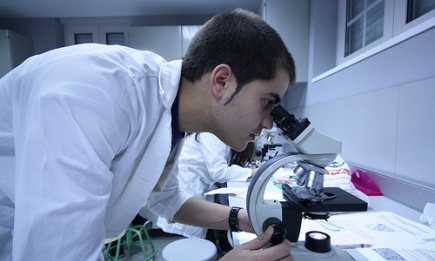Promoting peace through research

SESAME is a so-called synchrotron light source, functioning in effect like a giant microscope. The project is a unique joint venture based in Jordan that brings together scientists from its members Bahrain, Cyprus, Egypt, Iran, Israel, Jordan, Pakistan, the Palestinian Authority and Turkey. Alongside its scientific aims, the project aims to promote peace in the region through scientific cooperation.
European Commissioner for Research, Innovation and Science, Máire Geoghegan-Quinn, said: “We are very happy to join forces with CERN to support one of the most exciting scientific projects in the Middle East. The SESAME facility will not only offer researchers from the region state-of-the-art facilities, it will draw attention to the big advances that can be achieved in the region through peaceful cooperation.”
Important European contribution
CERN Director General Rolf Heuer said; “SESAME is one of the most important projects in the world right now. With its close parallels to the origins of CERN, I am very happy that we are able to make this important contribution to the young laboratory’s success.”
Through the agreement announced today, the Commission will contribute €5 million, allowing CERN, working with SESAME, to supply magnets for a brand new electron storage ring – the heart of the facility. This will pave the way for SESAME to begin commissioning in 2015.
SESAME Director, Professor Khaled Toukan, said: “Construction of SESAME is progressing well and we now want the scientific program to begin as soon as possible. The very welcome help of CERN, with the generous support of the EU, will enable this.”
The European Commission has already contributed more than €3 million to the project through the European Neighborhood and Partnership Instrument, and by supporting the SESAME networking, computing and data handling systems.
Meest Gelezen
‘Free riding brengt het hoger onderwijs in de problemen’
Vrouwen houden universiteit draaiende, maar krijgen daarvoor geen waardering
Hbo-docent wil wel rolmodel zijn, maar niet eigen moreel kompas opdringen
‘Sluijsmans et al. slaan de plank volledig mis’
Aangepast wetsvoorstel internationalisering dient vooral samenleving in plaats van student

